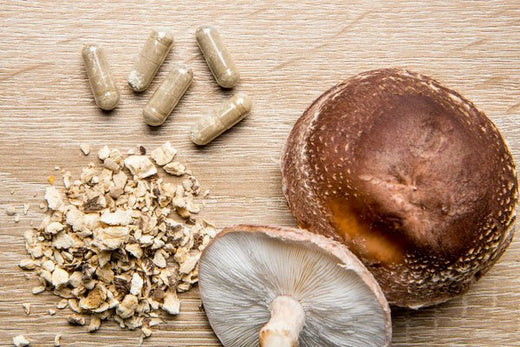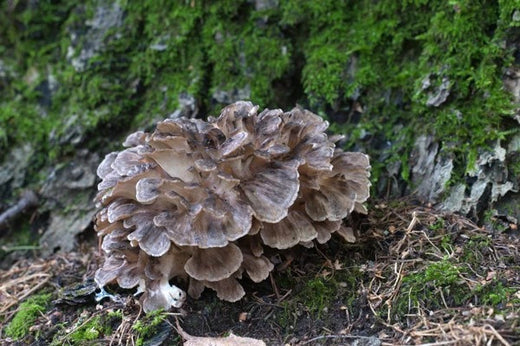13 Actionable Tips to Get a Healthy Night Sleep (Every Night)
 Sleep, the great mysterious time of slumber.
Sleep, the great mysterious time of slumber.
Once upon a time, we thought sleep was a period of nothingness, just a blackout phase, something that held no value and could be forfeited.
But now, as more and more research is being conducted into this mystical time, we’ve come to realise it’s actually the foundation of health and longevity.
Sleep is a time of metabolic cleanup, regeneration, hormone synthesis, recovery, repair, and a crucial aspect to all dimensions of health – physical, psychological emotional, biological and spiritual.
Sleep is a time that needs to be carved out and respected.
We need to understand that sleep is like our power outlet. Our cell phone battery dies when we don’t plug it in to charge and we’re kind of the same.
Without sleep, we drain our batteries and this leads to a plethora of dis-ease states and burn out.
Lack of sleep is linked with increased inflammatory markers, poor memory and brain function, anxiety, depression, weight gain, type II diabetes, poor performance, low libido, cardiovascular issues, stress and more.
It has almost become a right of passage and normal in our society to neglect sleep. It’s deemed “cool” within our culture to grind harder and sleep less hours than the body requires. But you know what’s not cool, what an accumulation of sleep deprivation does to the body.
This applies to all of us, across all lifespans.
Sleep is biologically built into our DNA and if there’s one thing we know – it’s that our bodies internal wisdom knows best.
Table of Contents
- 1. The Stress Hormone, Cortisol
- 2. Circadian Rhythm and the Happy Hormone, Serotonin
- 3. Blue Light Blocks Melatonin Production
- 4. Health Benefits of Sleep
- 5. Stages of Sleep
- 6. Sleep Cycles
- 7. 13 Actionable Tips to Get a Healthy Night’s Sleep Every Night
- 8. Sleeping Beauty Hot Chocolate Tonic Recipe
- 9. References and Resources

The Stress Hormone, Cortisol
Our hormones are tuned to wake with the sun and sleep with the moon. Our hormones are released at specific times throughout the day to ensure homeostasis and optimal living.
Our stress hormone–cortisol–dips at night, enabling us to relax and wind down. When we fight this natural dip, whether through continuing to be doing work, stressful tasks or the dopamine hit we get from our devices, we elevate our cortisol and thus, feel the effects.
We become “wired and tired.” Tired throughout the day but unable to get to sleep at night. This is because cortisol is elevated at night and low in the morning, which is the opposite of what we want. We get a surge of cortisol in the morning, which is what wakes us up and causes us to get out of bed and seize the day.

Circadian Rhythm and the Happy Hormone, Serotonin
This sleep/wake cycle is known as our circadian rhythm – and this is the magic of getting good sleep.
We need to program our body to go to sleep and wake up within the same time period each day. This gets our bodies into a predictable pattern, streamlining and normalising our hormones which helps produce an abundance of energy, vitality and happiness.
When the light comes into our eyes, it sends a message to the brain to wake up, its daytime, and it triggers a release of the happy hormone, serotonin.
Serotonin regulates our mood, appetite, memory and sleep.
This is why getting morning sunlight is a powerful way to not only improve your sleep but also boost your mood.
We can see how light exposure alerts our body to what time it is, and thus, which hormones and chemicals to release. With this, we can start to see the impact that artificial light can have on the health of our bodies and mind.

Blue Light Blocks Melatonin Production
When we are on our devices at night-time, the blue light emitted blocks melatonin production. It also tricks our body into thinking its daylight, messing up our circadian rhythm and biological programming.
Serotonin converts into melatonin, our get good sleep hormone, which helps regulate our sleep/wake patterns and is a natural anti-oxidant.
Melatonin gets released around 9 pm and signals to our bodily systems that it’s time for rest, recovery and sleep.

Health Benefits of Sleep
Getting a solid night of sleep increases our energy, efficiency, improves memory and cognition, strengthens the immune system, improves mood and reduces stress (just to name a few).
Restorative sleep enables our body to clear out cellular waste and toxic by-products of metabolism from our brain and central nervous system (CNS).
We have a glymphatic system that runs through our CNS, and when we’re asleep, our brain shrinks which enable the fluid to pass through and clear out the metabolic waste, that when not cleared out, creates plaque. And this beta-plaque is what causes Alzheimer's, dementia and cognitive decline.
Sleep is also the time in which our growth hormone is released and peaks at 11 pm. Growth hormone is responsible for exactly what you think it is – growing - new tissues, new cells, repairing muscle fibres, injuries and increases fat metabolism.
Information and memory processing occurs when we sleep. Our short-term memory and the day’s experiences get consolidated into our long-term memory, creating our lively existence and point of references.
Stages of Sleep
As mentioned in the beginning, once upon a time we didn’t know what happened during sleep. But now science has uncovered some of what occurs during the stages of sleep.
Stage One: Non-REM (NREM)
This is when we start to doze off. We’re starting to climb down the ladder to slumberland. We’re almost hallucinating in this phase, and we’re somewhere between asleep and awake.
Stage Two: NREM 2
This is our light sleep. We’re halfway down the ladder now. Our heart rate starts to slow, our breathing deepens and our body temperature starts to drop. We spend most of our sleep in this phase, and if someone yells our name we’d probably jolt awake. In stage two, our information is consolidated and motor skill improvement is linked to NREM2.
Stage Three & Four NREM
We’re in our deep sleep phases now. We’ve reached the bottom of the ladder and we’re just hanging out. This is where most of the magic happens. Our brain produces delta waves, growth hormone is released, and repair happens in this phase and if someone calls your name, chances are, you aren’t waking up.
Stage 5: Rapid-Eye Movement REM
This is us starting to climb back up the ladder to wakefulness. This is when we dream (which is also why we tend to remember our dreams when we wake up), and when our body is paralysed (so we’re not acting out our dreams in real life).
And then the cycle begins again.
Sleep Cycles
This entire journey of sleep from stage one through five takes around 90 minutes, constituting one sleep cycle.
Aiming for around five sleep cycles every night (7.5 hours total) is ideal for your health. Sleep coach Nick Littlehales also speaks of the benefits of sneaking in thirty-minute naps throughout your week to make up for any obstructed sleep cycles, enabling you to gain the benefits of adequate sleep if you’re unable to get the full five sleep cycles throughout the night.

13 Actionable Tips to Get a Good Healthy Night’s Sleep Every Night
Living in the modern world of smartphones, light bulbs, an excessive yang working environment and society, all of these contributing factors have negatively impacted our ability to get good sleep.
Below are some helpful points to optimise your sleep so you’re able to yield all the epic benefits that restorative sleep provides.
Key actions to take to optimise your sleep:
- Reduce screen time as bedtime approaches. Aim for no devices 30 minutes or more before bed.
- Download f.lux or Iris on your devices to ‘warm them up’ and block some of the blue light that’s being emitted. Or go one step further and get blue-blocking glasses to wear during the evening.
- Give yourself an appropriate hour to go to bed. I know, back to childhood we go. But it’s more about programming the body that sleep occurs at a consistent time each night, enabling the body to adapt and start to get into sleep mode, improving your sleep quality.
- Leave the bedroom as that – the bedroom. Try to minimise or remove non-bedroom behaviours, such as checking emails, continuing work, watching TV, eating, etc. The bedrooms for sex and sleep. And when you do these things in your bedroom, your body will subconsciously associate those habits and automatically expect and know that it’s a time for rest and will help to optimise your sleep environment.
- Don’t have a super hot shower before bed. Our body temperature drops during sleep and this enables us to get into the optimal state for deep, restorative sleep. We all know how bad it is trying to sleep in summer when we’re hot, and just have a restless night. So either set the temperature in the bedroom to around 18 degrees Celsius (65 F) or giving your body time to cool down before hopping into bed.
- Create a nighttime routine and stick to it.
- Utilise the sleep-promoting powers of adaptogenic herbs and minerals to aid in developing a sleep pattern. Reishi mushroom, Pearl powder, mucuna pruriens, kava, passionflower, lavender, valerian, zizyphus, magnolia, chamomile are all wonderful sleep-promoting and relaxing herbs. Whether in the tea or tablet form. Magnesium is also great for sleep.
- Don’t eat too close before bedtime. Ideally, you want to finish eating three hours before you go to bed. Why? Eating causes our metabolism to ramp up, it creates heat, utilised energy and shifts us out of this restful period because instead of repairing our tissues, our bodies cellular energy is being used up for digestion.
- Reduce water intake at night. Because waking up to go to the bathroom in the middle of the night is a sure way to interrupt your sleep.
- The darker your bedroom – the better. As we know, when the sun or light comes in, our photoreceptors send signals to our brain that its time to wake up. However, “blackout” curtains are useful, but as long as in the morning, as the sun starts to come up, it’s able to come in and wake you up. If we sleep in complete darkness, even in the morning, this will also confuse the body and play around with our hormones, and we’ll feel tired, fatigued and foggy.
- Get outside in the morning. Exposing ourselves to the early sunlight again, programs our sleep/wake hormones, and is an easy way to help improve your sleep.
- Learn your sleep cycles and notice what works for you.
- What’s your Chronotype? Are you an AM’er or a PM’er? Morning person or night owl? Do you naturally wake between 5-7 am and go to sleep around 9-11 pm? Or do you go to bed between 12-3 am and wake around 9-11 am? Knowing your chronotype and natural gravitation towards sleep and wake cycles is important for constructing your life in a manner that is suitable so you’re able to get optimal sleep without having to compromise the epic health benefits of good sleep.
Introducing one or more of these valuable points into your life, you will quickly see an improvement in your circadian rhythm and quality of sleep.
Sleep is the foundation of excellent health.
Once you start optimising your sleep, you’ll notice and reap many of the immense health benefits–increased efficiency, productivity, creativity, energy, vibrancy and vitality. Sweet dreams.

Sleeping Beauty Hot Chocolate Tonic Elixir Recipe
Ingredients:
- 2/3 cup hot water or tea base
- 1/3 cup hot almond milk
- 2 tsp Coconut oil
- 1-2 tsp raw cacao powder
- 1 tsp raw honey or stevia to taste
- 1/2 tsp Reishi mushroom extract powder
- 1/4 tsp Pearl extract powder (optional for non-vegans)
Directions:
Add all ingredients to a blender and blast on high until frothy, about 20 seconds. Sweeten to taste. Sip, share, love and enjoy! Sleep well.
View the full recipe
Written by Eliza Hedley
Eliza is the millennial nutritionist– a health, mindset and abundance enthusiast obsessed with helping millennial's experience living at a higher level. Her relaxed new age approach and understanding of nutrition and wellness sees her empowering and coaching individuals to understand that their health is the ultimate asset. Upon experiencing first hand the power and place of tonic herbalism and medicinal mushrooms in everyday life, Eliza’s become an adaptogen fangirl and feels their utilisation in today’s world is essential for abundance and wellbeing.
Website: https://themillennialnutritionist.com/
Instagram: @themillenialnutritionist
References and Resources:
-
The Glymphatic System: A Beginner's Guide. Neurochem Res. 2015 Dec;40(12):2583-99. doi: 10.1007/s11064-015-1581-6. Epub 2015 May 7.
-
Sleep: The Myth of 8 Hours, the Power of Naps, and the New Plan to Recharge Your Body and Mind by Nick Littlehales, 2018
-
Dr Michael Breus - https://thesleepdoctor.com/
-
What’s your chronotype? - https://thepowerofwhenquiz.com/
-
Sleep Cycle Alarm Clock (app) - https://www.sleepcycle.com/
-
Oura Ring - The world’s best sleep tracker
-
Iris - Software for Eye protection, Health and Productivity
-
f.lux: software to make your life better
Disclaimer: The materials and information provided in this article from Teelixir Pty Ltd. are strictly for informational purposes only and are not intended for use as diagnosis, prevention or treatment of a health problem or as a substitute for consulting a qualified medical professional. Please consult your medical practitioner for advice about all food products related to this website before including them into your health program, or making any changes to your diet, lifestyle, or exercise program. Teelixir will not be responsible for any use, non-use, or misuse of any product that is sold or distributed via this website.
You may also like these blog posts:
Ancient Beauty Secrets Of Pearl Powder (10 Anti-Aging Benefits Backed By Science)
How Reishi Mushroom Can Reduce Stress And Anxiety (Transform Your Consciousness)
Which Diet Is Right For You In 2019? (Diet Variation Principles)






